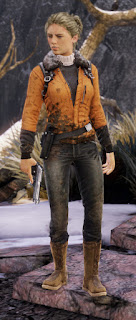We're not sure where the following series - I suppose you can label them guest blogs - will go, for having no specific destination or locked parameters of form in mind is part of the allure. As we learn about each other, so readers will (hopefully) gain insight into our work, our working, us, and writing - in general, and in specific.
Below are Jones' responses to my introductory questions. Check her Facebook author page for my responses to hers.
-Josh Karaczewski: Who is your blog for? Describe your ideal reader.
Nath Jones: I
don't really have a blog. I have a new website with a cool plug-in for
the blog. But. I'm still debating about what to do with it. I always had
a huge resistance to blogs. It just seems so ridiculous to tell
everybody everything. But. Then I ended up doing that very thing in
emails and on Facebook instead of on a blog. Probably should have just
had a blog.
My ideal reader? Loves books. Likes mine.
-JK: What themes have you been exploring? And in what format?
NJ: I'm
doing some ground tests in relation to the ruggedly individual
capitalist American Dream. I think it's funny how art gets divided from
our busy, headlong lives. I want to see where that divergence occurs.
-JK: What keeps you blogging, especially video-blogging? (I'd say v-blogging, but that sounds like what happens after a night of alcoholic excess.)
NJ: V-blogging
is fine with me. I spent some time figuring out what would be
sustainable for me. I'm not a fan of subjective opinion. To me it's bad
enough to be telling everyone everything all the time. I really don't
want to be judging everything all the time. So. Reviews are not for me.
But. I really do love books and want to share them with people. When I
was a kid I always had this idea that I'd have a late-night radio show
and just read books to people all night. So. The Literature Break is a
derivation of that dream.
-JK: How do you esteem and value fiction? Why should we bother investing our time?
NJ: Writing
is my first priority. For my life and time, writing and reading are
everything. They come before friends, before family, before work.
Everything else is secondary. That really confuses people. But. After
folks understand my priorities they respect it.
For myself, I really do have
the compulsion. So. There's no should in terms of why we're bothering to
invest our time. For me, it's happening and that's it. So. I really
can't speak for anyone else. I can't say that anyone else would really
talk to their work scheduler and ask to work all weekends to have enough
time to write. For me, that's what seemed right.
And I really don't feel that others should do anything. I don't care if people read and write. Why does it matter? They can do whatever they want. I'm not one of these literacy enforcers.
But. For me, there's no other way to lose myself, to transcend daily life, and to enter a space of total flow.
And I really don't feel that others should do anything. I don't care if people read and write. Why does it matter? They can do whatever they want. I'm not one of these literacy enforcers.
But. For me, there's no other way to lose myself, to transcend daily life, and to enter a space of total flow.
-JK: Have you ever been to the San Francisco Bay Area?
NJ: Yes.
Definitely. I love it. I love Muir Woods. I love the Marin Headlands. I
love the tourist stuff with the seals. The museum where you can see the
cables working to pull the street cars. Golden Gate park. The gorgeous
vistas. Come on. It's an amazing city. I love the food--hate that
Enrico's closed.

